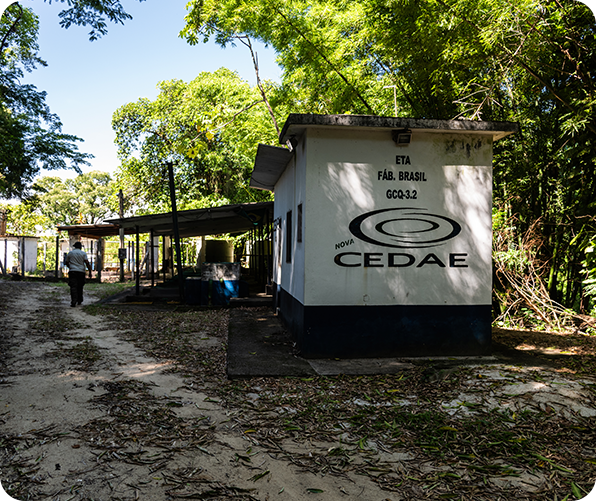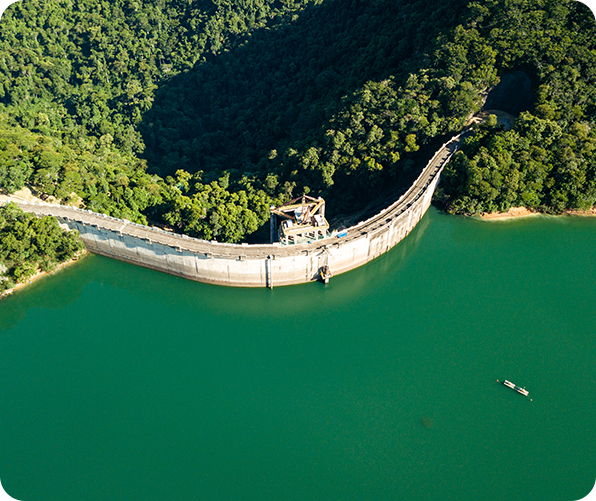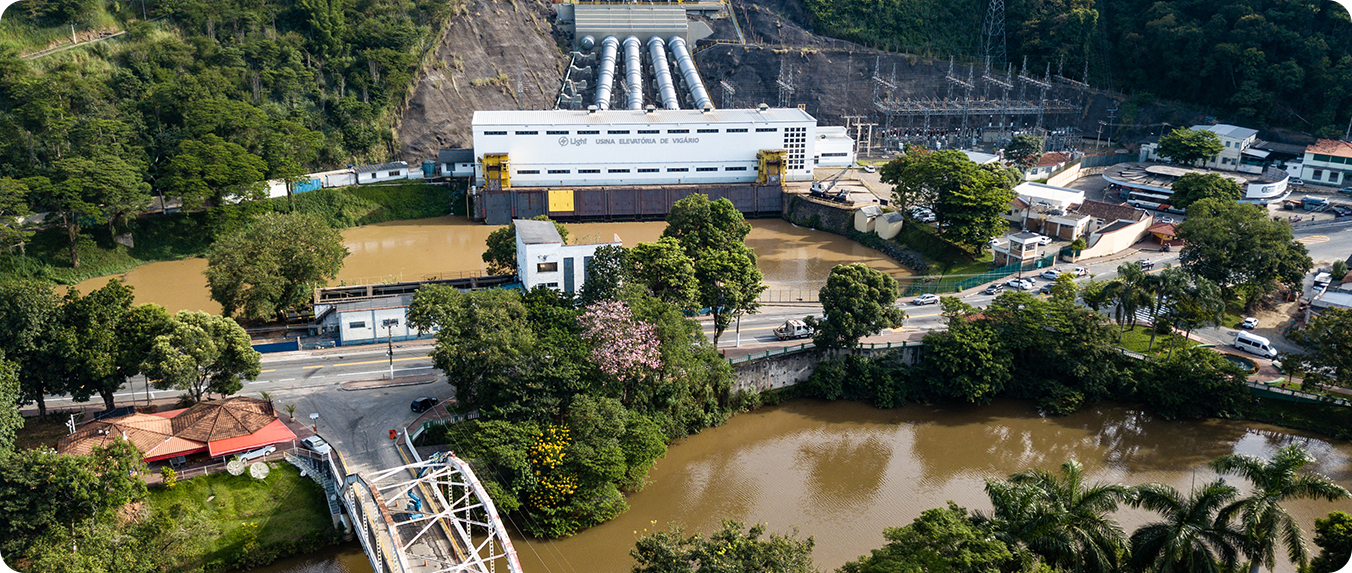The Committee
Who we are
The Committee on Hydrographic Basins of the Guandu, Guarda and Guandu-Mirim rivers (Comitê Guandu-RJ) is a collegiate body, in which representatives of public authorities, civil society and water users participate. The purpose of the Committee is to carry out the decentralized and participatory management of water resources in the basins, aiming to bring clean and abundant water to everyone.
Creation Decree
State Decree No. 31,178/2002 created the Guandu Hydrographic Basin Committee, which comprises the hydrographic basin of the Guandu river, including the sources of the Ribeirão das Lages river, the diverted waters of the Paraíba do Sul and Piraí rivers, the tributaries of the Ribeirão river from Lages, to the Guandu river and the São Francisco channel, to its mouth in Baía de Sepetiba, as well as the hydrographic basins of the Guarda and Guandu-Mirim rivers.
On November 25, 2015, the State Decree was amended by Decree No. 45.463.
Click here to access Decree No. 31178/2002.
Click here to access Decree No. 45,463/2015.
Regulation
The first version of the Guandu-RJ Committee’s Internal Regulation was approved at the Extraordinary Plenary on July 20, 2004. On August 28, 2014, the revision of this document was approved, the latter being the current version.
Click here to access the first version of the Internal Regulation.
Click here to access the current version of the Internal Regulation.
Composition
The Guandu-RJ Committee is composed of the Plenary, the highest decision-making body, by the Collegiate Board, responsible for administratively and technically directing the Committee, by the Technical Assemblies, which are thematic and discuss issues forwarded by the Collegiate Board or by the Plenary, by the Working Groups and by the Executive Secretariat.
Click here to learn about our structure and composition of these instances.
History


Headquartered in Seropédica (RJ), in the Baixada Fluminense, the Guandu-RJ Committee began on April 3, 2002, through State Decree No. 31,178 (new wording in 2015, by Decree No. 45,463), to promote decentralized management and participatory water resources in the hydrographic basins of the Guandu, Guarda and Guandu-Mirim rivers. The Committee is responsible for coordinating the activities carried out by public and private agents in the surroundings in favor of the basins. In 2004, with the release of charges for water use throughout the state of Rio de Janeiro (Law 4.247/03) and the creation of the State Water Resources Fund (FUNDRHI), the Water Resources Policy gained even more strength.
The Guandu-RJ Committee was the first to be founded by decree in the state of Rio de Janeiro and initially had its headquarters located in the Edificio Mourisco, in the neighborhood of Botafogo, in Rio de Janeiro, migrating to the Federal Rural University of Rio de Janeiro (UFRRJ) and then to the current address, Avenida Ministro Fernando Costa, 775, in the Fazenda Caxias neighborhood, in Seropédica. Before relying on its own resources, arising from charging for the use of water, some of the Committee's expenses were paid by government agencies and partner institutions. The first headquarters of the Guandu-RJ Committee, for example, operated in a space provided by Cedae.
The Water Resources Strategic Plan (PERH) is the management instrument that guides the Committee decisions and one of the pillars of the integrated and participative management of water resources in Hydrographic Region II (RH II). It is a strongly agreed-upon planning and integration instrument, which allows the Committee, management bodies and other components of the Water Resources Management System with responsibility for the region to effectively and sustainably manage their surface and groundwater resources for the benefit of present and future generations. Its latest version has an Operational Plan Manual (MOP) that contains detailed actions, goals and deadlines. Access by clicking here.
Resolutions
In compliance with the Access to Information Law (No. 12527) and to ensure transparency, the Guandu-RJ Committee makes its resolutions available for public access.
Motions and minutes
The Guandu-RJ Committee Plenary meets four times a year and, extraordinarily, whenever called by the Collegiate Board or upon request of, at least, one third of the Plenary members.
The Technical Asemblies meet nine times a year and, extraordinarily, whenever they are convened, to discuss issues forwarded by the Collegiate Board or the Plenary, and may also prepare proposals to be submitted to the Plenum.
Basin Agency
The national and state water resources policies establish the Water Resources Management System which, in the state of Rio de Janeiro, is formed by the State Water Resources Council, the State Water Resources Fund, the Hydrographic Basin Committees, the entities of the federal, state and municipal public authorities (whose powers are related to the management of water resources) and by the Water Agencies.
The Water Agencies are entities with their own legal personality and financial and administrative autonomy. They have the objective of providing technical and administrative support to the Basin Committees, exercising, among other functions, that of executive secretariat. In the Guandu-RJ Committee, this role is played by the Paraíba do Sul River Basin Water Pro-Management Association (Agevap). Created on June 20, 2002, Agevap is an association governed by private law with non-economic purposes, with its technical and administrative staff formed by employees approved in a public selection process.
Management
The Guandu-RJ Committee is responsible for coordinating, in its area of operation, the activities of public and private agents, related to water and environmental resources, reconciling with the goals and guidelines of the Basin Plan, as well as the State Water Resources Plan.
Learn more about basin management by clicking here
Electoral Process
The Committee carries out its public electoral process every two years. Representatives of federal, state and municipal executive powers that deal with water resources, sectors of water users and organized civil society organizations may participate in the process and composition of the collegiate body. The members appointed by the elected institutions have a two-year term, with reelection permitted.
Click here to check the Internal Regulation with the guidelines on the electoral process of the Guandu Committee.
Click here to check the Call Notices for the Electoral Process of the Guandu-RJ Committee.
Notices
Purchasing and contracting procedures, the electoral process, selection processes and the calls of the Guandu-RJ Committee are carried out through public notices.
Click here to check the history and open notices.

